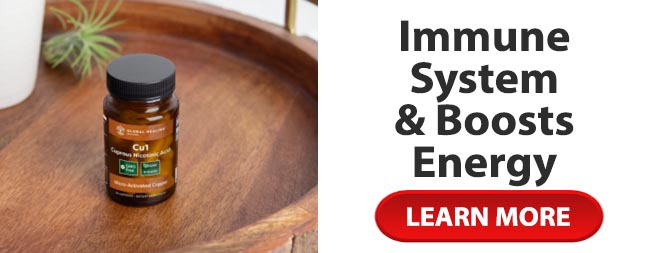Epistaxis or a nosebleed is a relatively common case of hemorrhage from nose. It can be noticed when the blood drains out through the nostrils. Among children and young adults, nosebleeds usually start from the septum (just inside the nose) that separates your nasal chambers.
In middle-aged and older adults, in many cases nosebleeds begin from the septum, but they may also start deeper in the nose\’s interior which is not very common. It may also be due to hardened arteries or high blood pressure. If these nosebleeds start spontaneously and are often difficult to stop they may require a specialist\’s help.
Types of nosebleed:
There are two types of nosebleeds
Anterior (the most common one)
Posterior (less common, more likely to require medical attention)
Causes of nosebleeds:
In most of the cases there is no obvious reason for nosebleeds. Generally it may depend on two factors:
Local factors
Systematic factors
Local factors:
Sharp blow to the face that might have been cause nasal fracture
Foreign bodies
Inflammatory reaction
Nasal sprays
Surgery such as Septoplasty and Functional Endoscopic Sinus Surgery
Leech infestation
Intranasal tumors
Otic barotraumas (during the descent from aircraft or ascent in scuba diving)
Anatomical deformities
Systematic factors:
Allergies
Infectious diseases (such as common cold)
Hypertension
Anaemia
Addiction to drugs (Cocaine)
Alcohol
Drugs (Aspirin, Fexofenadine, ibuprofen, ginseng etc)
Connective tissue disease
Hematological malignancy
Blood dyscrasias
Pregnancy (rare)
Vascular disorders
Vitamin C or Vitamin K deficiency
Von Willebrand’s disease
Consumption of hot foods and drinks
Nose bleeding in children:
Some children get nosebleeds more often than others. This is because some children’s veins are closer to the mucous membrane of their nose unlike other children. Therefore they are more likely to burst when a kid picks, blows or rubs their nose or plays body contact, hectic games. Children who pick their nose a lot are more likely to get nosebleeds. So you must trim your children’s nail frequently. A petroleum jelly is also useful to soften scabs.
Link between Chinese food and nose bleeding:
Chinese foods contain high amount of salt in it that can raise blood pressure which possibly causes nosebleeds. But apart from Chinese food most of the Asian foods contain seasonings rich in salt. Some seasonings that may cause nose bleeding are:
Salt
Chili Powder
Chili Sauce
Garlic salt
Worcestershire sauce
Lemon pepper
Teriyaki sauce
Nose bleeding- prevention:
To prevent nose bleeding in children make your child aware of the ill effects of nose picking. Trimming child’s nail may help control nose picking. Encourage your child for healthy play habit to avoid any serious injury. You may also use a humidifier in your kid’s bedroom or playroom if the atmosphere is dry. Take care of your child so that does not insert any foreign object or sharp things inside nose. If the bleeding is excessive and the child faces trouble in breathing consult a physician immediately.
Frequent nosebleeds:
If you experience frequent nosebleeds, consult your doctor; perhaps you require a blood vessel cauterized. In cautery the blood vessel is burned using electric current, silver nitrate or a laser. Sometimes your doctor may cover your nose with special gauze or an inflatable latex balloon to exert pressure on the blood vessel in order to stop the bleeding.
Also consult your physician if you are having nasal bleeding and are taking blood thinners, such as aspirin or warfarin (Coumadin). Your doctor may advise revising your medication intake.
Use of supplemental oxygen administered with a nasal tube (cannula) may heighten your risk of nosebleeds. Apply a water-based lubricant to your nostrils and try to raise the humidity in your home to help relieve nasal bleeding.
How to take care of a nosebleed:
Sit upright and lean forward. It may help you reduce blood pressure in the veins of your nose. This restricts further bleeding. Leaning forward will help you avoid swallowing blood that can trouble your stomach.
Pinch your nose– Using your thumb and index finger pinch your nostrils shut and breathe through your mouth. Continue pinching for 5 to 10 minutes. This maneuver exerts pressure to the bleeding point on the nasal septum and often restricts the blood flow.
To prevent re-bleeding after bleeding has stopped, avoid picking or blowing your nose and do not bend down for several hours after the bleeding episode. Try to keep your head higher than the level of your heart. If your nose re-bleeds, blow your nose out forcefully to clear your nose from blood clots and spray both sides of your nose with a decongestant nasal spray containing oxymetazoline (Afrin, others). Then pinch your nose in the technique described previously and call your doctor.
Seek medical care immediately if the bleeding continues for more than 20 minutes. Do not neglect to see a doctor if your nosebleed is caused by an accident, a fall or an injury to your head, as well as a punch in the face that may have broken your nose.

